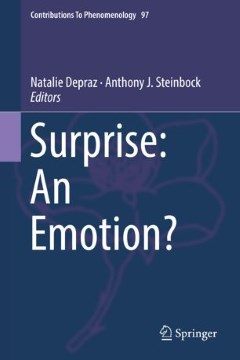Describing and expressing surprise
pp. 163-189
Abstract
The present paper aims to define the linguistic status of surprise, in comparison with other more prototypical emotions. Based on a sample of American spoken English (In Treatment), we argue that surprise entails an epistemic judgment whereby a specific event is connected to the speaker's set of expectations. Our contention is that surprise can be characterized as a disconnection between emotive and emotional communication (Marty A: Untersuchungen Zur Grundlegung Der Allgemeinen Grammatik Und Sprachphilosophie. Olms, Hildesheim/New York, class="CitationRef">1976), identified linguistically as a disconnection between expression and communication (Bally C: Le Langage et La Vie. Payot, Paris, 1926). Emotional reactions of surprise are thus expressed by the speaker's intonation in mirative utterances, and by non-sentential elements in constructions. The second part of our study focuses on surprise lexemes (surprise (N) and surprised (Adj)). Surprise (N) cannot be classified as an epistemic state noun, nor as a prototypical psychological noun, as its prototypical sense is actually what we call its source reading. The state reading of the noun is thus identified as a metonymic extension of that prototypical sense, thereby reversing the expected structure of its semantic network. Similarly, the adjective surprised does not fall into prototypical scenarios, but rather rich and complex ones, pragmatically speaking. We show that the use of surprised (Adj) implies a comment on or an explanation of the initial emotional reaction, not the expression of it.
Publication details
Published in:
Depraz Natalie, Steinbock Anthony (2018) Surprise: an emotion?. Dordrecht, Springer.
Pages: 163-189
DOI: 10.1007/978-3-319-98657-9_11
Full citation:
Celle Agnès, Jugnet Anne, Lansari Laure, L’Hôte Emilie (2018) „Describing and expressing surprise“, In: N. Depraz & A. Steinbock (eds.), Surprise, Dordrecht, Springer, 163–189.


